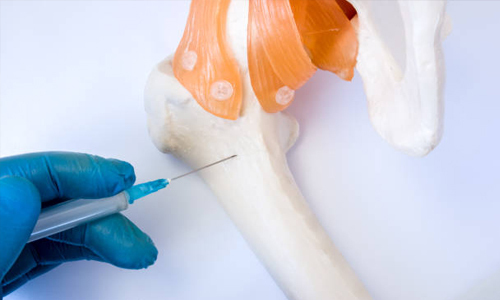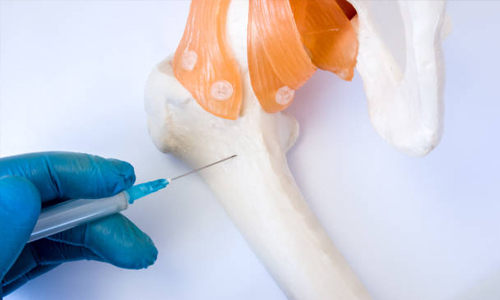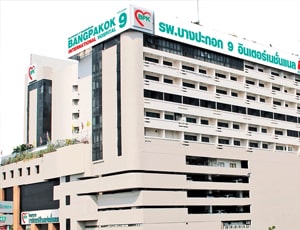The average cost of Bone Marrow Transplant in Bangkok approximately starts from USD 155000
Treatment cost

Gurgaon, India
USD 22750 USD 26000
Verfifed
We provide numerous services for your medical journey, including:
We provide packages at economical prices with a number of additional benefits which make it a better opportunity than spending actual hospital costs with singular benefits.

We provide numerous services for your medical journey, including:
We provide packages at economical prices with a number of additional benefits which make it a better opportunity than spending actual hospital costs with singular benefits.

Types of Bone Marrow Transplant in Bangpakok 9 International Hospital and its associated cost
| Treatment Option | Approximate Cost Range (USD) | Approximate Cost Range (THB) |
|---|---|---|
| Bone Marrow Transplant (Overall) | 91654 - 179535 | 3235622 - 6442618 |
| Autologous BMT | 67603 - 114337 | 2443255 - 4034857 |
| Allogeneic BMT | 111856 - 181737 | 4056822 - 6440438 |
| Syngeneic BMT | 67500 - 88097 | 2453662 - 3224166 |

A bone marrow transplant is a process that involves harvesting cells for transplantation from the bone marrow which is the spongy tissue found in the cavities of certain bones such as the hip bones. It is also known as Stem Cell transplant. The bone marrow is rich in stem cells, which are capable of developing into various types of blood cells.
The main objective of bone marrow transplantation (BMT) is to transplant healthy bone marrow cells into a patient after the patient's unhealthy bone marrow has been treated to eliminate cancerous cells.
BMT has been used successfully in the treatment of the following diseases such as:
There are two main types of bone marrow transplants (BMT), also known as stem cell transplants, based on the source of the stem cells. These are:
To ensure the patient is ready for a stem cell transplant, a series of tests will assess the overall health and condition, and A suitable donor identified for allogeneic transplants. This can be a sibling, an unrelated donor, or, in some cases, a half-matched family member (haploidentical).
This test may take a few days, a thin tube, known as a central line, is placed in a large vein in the chest or neck. This central line stays in place throughout the treatment, allowing the transplant team to deliver stem cells, medications, and blood products. This is called conditional therapy.
Following the completion of all pre-surgery testing, the following goals would be attained by performing Ablation therapy by the oncologists through chemotherapy and radiation to
Collection of the stem cells: For autologous transplants, the patient's stem cells are collected. This is usually done through a process called apheresis, where blood is drawn, stem cells are separated, and the remaining blood is returned to the patient.
For allogeneic transplants, the donor undergoes a similar process to collect stem cells.
Transplantation: The harvested stem cells are infused into the patient through a central venous catheter, similar to a blood transfusion. The infused stem cells travel to the bone marrow, where they begin to produce new blood cells.
Following the transplant, supportive care is provided to prevent and treat infections, side effects of treatments, and complications. This includes frequent blood tests, close monitoring of vital signs, strict measurement of fluid input and output, daily weigh-ins, and providing a safe and clean environment.
Engraftment: Engraftment refers to the successful establishment of the transplanted cells in the patient's bone marrow. This is monitored by regular blood tests to check for the presence of donor cells.
While undergoing bone marrow infusions, the patient could feel Pain, Chills, Fever, and Chest Pain.
Following a stem cell transplantation until the bone marrow can sufficiently produce blood cells, patients are at an increased risk of infections and diseases. To prevent contamination, individuals undergoing stem cell transplantation are typically placed in isolation rooms. This precautionary measure lasts for over a week or until the blood cell levels return to normal.
Isolation is more important in the case of allogeneic stem cell transplant than autologous stem cell transplant. This is the reason why some hospitals do not prefer to keep a patient who has had an autologous transplant isolated.
During the recovery phase, only one or two visitors are permitted, and those already unwell are strongly discouraged from visiting. Some hospitals offer autologous stem cell transplants on an outpatient basis, although regular follow-up visits for health monitoring are essential for a month or longer. The protective measures aim to ensure a safe and steady recuperation for patients during this critical phase of their treatment.
Ask your healthcare adviser for the best multiple options and choose the one that meets your expectations
The cost of Bone Marrow Transplant in Bangkok starts from $155000. Many multispeciality hospitals which are JCI certified are approved to operate a Bone Marrow Transplant in Bangkok.
Bone Marrow Transplant cost in Bangkok varies from one hospital to the other. The top hospitals for Bone Marrow Transplant in Bangkok covers all the expenses related to the pre-surgery investigations of the candidate. The comprehensive Bone Marrow Transplant package cost includes the cost of investigations, surgery, medicines and consumables. Extended hospital stay, complications after the surgery or new diagnosis may affect the overall cost of Bone Marrow Transplant in Bangkok.
Bone Marrow Transplant in Bangkok is offered by multiple hospitals across the country. For quick reference, the following are some of the leading hospitals for Bone Marrow Transplant in Bangkok:
While the speed of recovery may vary from patient to patient, they are still required to stay for about 60 days after discharge. This is important to ensure that the surgery was successful. During this time, control and follow-up tests take place to check for medical fitness.
Apart from the Bone Marrow Transplant cost, the patient may have to pay for additional daily expenses such as for guest house after discharge and meals. These are the chanrges for daily meals and hotel stay outside the hospital. The extra charges may vary from 25 USD.
The average duration of stay at the hospital after Bone Marrow Transplant is about 30 Days for proper care and monitoring. This time frame is important for the patient to recover properly and feel comfortable after the surgery. With the help of several tests, it is determined that the patient is doing fine after the surgery and is okay to be discharged.
There are about 1 Hospitals in Bangkok that offer Bone Marrow Transplant to international patients. These hospitals have propoer infrastructure as well as offer good quality of services when it comes to Bone Marrow Transplant surgery. Also, these hospitals follow the necessary guidelines as required by the medical associations for the treatment of Bone Marrow Transplant patients.
Some of the most sought after doctors for Bone Marrow Transplant in Bangkok are:
Bangkok in Thailand is a sought-after destination for medical tourism. On average, around 2.5 million international patients visit Thailand every year, mostly to Bangkok to avail healthcare services. The number of medical tourists visiting Bangkok continues to rise because of the affordable and advanced treatments available in the city. Bangkok is renowned for its high standard of medical technology and globally trained doctors. In Bangkok, patients can expect to save about 50-70% of the cost when compared to countries like Australia and US. In addition to competitive prices, hospitals in Bangkok offer shorter waiting times to international patients. Over 20 hospitals in Bangkok have received accreditation from the Joint Commission International (JCI) for setting benchmarks in healthcare. The hospitals in Bangkok also have a long-standing tradition of focusing on patient-centric care. They provide interpretation services in various languages so that patients can communicate effectively with their doctors.
Bangkok offers technologically advanced hospitals that are well-furnished to take care of all the healthcare needs of the patients. Some of the top hospitals in Bangkok are:
Bangkok has a pool of skilled and qualified doctors who have completed training at some of the most prestigious institutes across the world. Some of the top doctors in Bangkok are:
Bangkok has excellent connectivity with the rest of the world by air. There are two airports in Bangkok: Suvarnabhumi, which is 25 kilometers to the east, and Don Mueang, which is 24 kilometers to the north of Bangkok. You can take a flight from your city to these airports and then travel to downtown Bangkok by bus or train. In case you wish to avail treatment here, we can assist you in planning your medical travel.